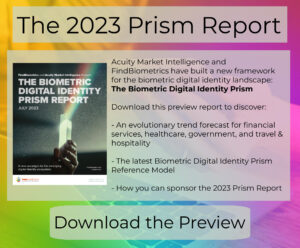Welcome to FindBiometrics’ digest of identity industry news. Here’s what you need to know about the world of digital identity and biometrics today:
ENISA Offers Notes On Digital Wallet Standards
ENISA, the European Union agency for cybersecurity, has published a guide to digital identity standards in the bloc. What’s more, the aptly named “Digital Identity Standards” guide includes an annex section focused on the standards that could apply to the EU’s forthcoming European Union Digital Identity Wallet, or “EUDI Wallet” — of which there are already some that are “directly applicable” along with others in the form of working drafts. But the document also flags two “major gaps”. First, there are no European or international standards for the interface of the cryptographic component of the mobile device used for the EUDI Wallet. And second, certain “Functional Testing Requirements” are missing for elements of the wallet, including “PID/(Q)EAA mutual authentication protocols” and “Qualified Electronic Signatures.” ENISA’s analysis goes on to say that it’s “interesting to note that two standardised PID/(Q)EAA mutual authentication protocols (EAC2 and FIDO2) are available, and more than six are available for the user authentication.”
Sri Lanka Seeks Solutions for Digital Identity Project
The procurement process for the Sri Lanka Unique Digital Identity Project is now underway, according to the country’s technology minister, Kanaka Herath. The project is being undertaken in collaboration with the government of India, which has contributed 300 million rupees for its development. Sri Lanka’s Information and Communication Technology Agency (ICTA) is overseeing the project, with PricewaterhouseCoopers (PwC) Lanka providing technical knowledge on digital ID. Ultimately, authorities are aiming for the deployment of a centralized, national biometric ID system that includes face, fingerprint, and iris data.
South African Mortuaries Get Biometric Body Identification Tech
The Gauteng Health Department has launched a new digital fingerprint scanning system for the identification of unclaimed bodies in the South African province’s mortuaries. The biometric system will link with records held by the Home Affairs Department and the South African Police Service, as well as the national credit bureau. The Department had disclosed earlier this year that it was dealing with nearly a thousand unclaimed bodies.
ACSA to Implement Biometric Traveler Identification Tech
Airports Company South Africa (ACSA), which operates nine of the country’s airports, is in the midst of a digital transformation project that includes plans to establish a biometric border control system in collaboration with the Department of Home Affairs. In a statement, ACSA explained that the system will use facial recognition technology to match travelers against the biometric data in their passports. ACSA is also working with Microsoft on an AI-driven system that will recognize individual passengers in order to deliver better service. Microsoft does not appear to be the only vendor involved in the effort, with ACSA CIO Mthokozisi Mncwabe explaining that his organization is also “engaging with a number of service providers to ultimately empower the customer by delivering a platform that is user-friendly and easy to understand.”
Australian Department of Finance Takes Over Digital ID Project
Responsibility for Australia’s developing digital identity program has been handed over from the country’s Digital Transformation Agency to the Department of Finance. The transition comes after the Australian government’s announcement last month of a “National Strategy for Identity Resilience“, which emphasized an important role for digital credentials as well as biometrics in the country’s digital infrastructure. Commenting on the latest handover of the digital identity project, a spokesperson for Australia’s finance minister said the government “took a decision to move the function to the department to support the legislative and regulatory foundations for a phased roll out across the economy.”
BioCatch Tracks Surging Fraud in APAC Region
BioCatch says there has been a 200 percent surge in voice-based digital banking scams in the APAC region over the past year, and that 54 percent of all confirmed fraud cases in the region have been the result of Authorized Push Payment attacks. The stats come from the behavioral biometrics specialist’s 2023 Asia-Pacific (APAC) Digital Banking Fraud Trends Report, which also tracks a strategic shift on fraudsters’ part from remotely taking over victims’ devices to social engineering scams, a trend that is particularly prominent in Australia.
–
July 14, 2023 – by Alex Perala









Follow Us